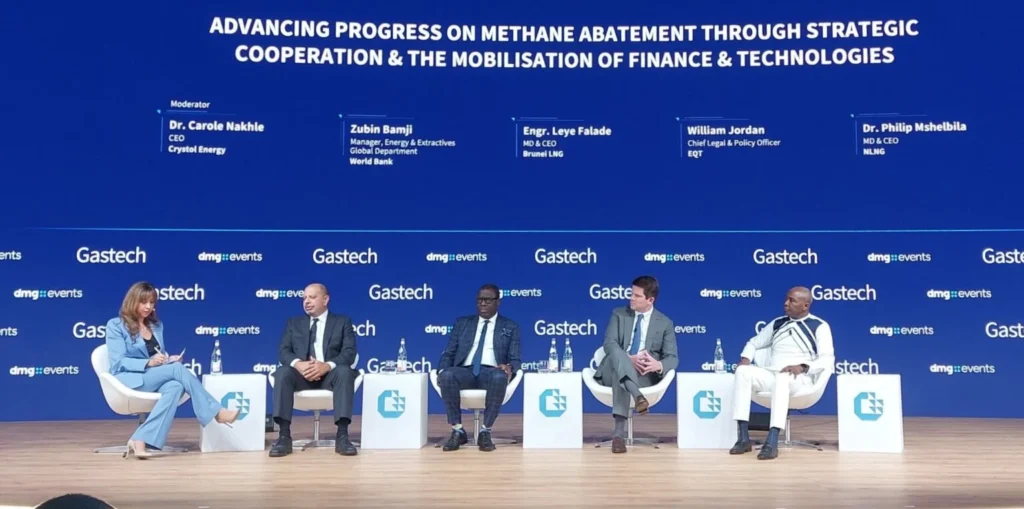Nigeria Liquefied Natural Gas Limited (NLNG) has called for international collaboration to tackle methane emissions and accelerate climate action.
Dr Philip Mshelbila, Managing Director of NLNG, made the appeal during a panel session at the Gastech Exhibition and Conference in Milan, Italy.
The session was themed “Advancing Progress on Methane Abatement Through Strategic Cooperation and the Mobilisation of Finance and Technologies.”
Mshelbila stressed that methane reduction must be prioritised due to its high climate potency and short atmospheric lifespan compared to carbon dioxide (CO₂).
He explained that about 40 per cent of methane emissions were natural, while 60 per cent came from human activities.
“Of this 60 per cent, agriculture contributes 40 per cent, and waste, 20 per cent. Globally, oil and gas account for 21 per cent of total methane emissions from fossil fuels, making the sector a critical focus for intervention,” he said.
He identified coal mining, flaring, venting, fugitive releases, and incomplete combustion as key sources of fossil fuel-related emissions requiring targeted mitigation strategies.
Mshelbila outlined three pillars for addressing the challenge: prevention, detection and measurement, and intervention. He said prevention involved designing new facilities to minimise leaks and upgrading existing infrastructure, while detection and measurement relied on advanced technologies to track performance.
“If you cannot measure it, you cannot know how well you are performing,” he stated.
He noted that methane lingered in the atmosphere for about 12 years, compared with hundreds or thousands for CO₂, yet it was over 80 times more potent, making its reduction a “fast-track” climate solution.
According to him, attention must focus on methane mitigation technologies while supporting small-scale producers and transporters who often lack the capital to invest in advanced systems.
While CO₂ regulations are relatively mature, he observed that methane policies remained underdeveloped, particularly in developing countries, calling for industry-wide collaboration and inclusive frameworks to close the gap.
Highlighting NLNG’s contributions, Mshelbila said the company had reduced Nigeria’s gas flaring by more than 40 per cent since its inception 26 years ago.
“Methane is energy. It is good as long as you keep it in-pipe. NLNG was created to monetise associated gas that was previously flared during oil production. We have invested in detection, measurement, monitoring, and reporting systems to manage methane emissions,” he said.
He added that NLNG had joined the Oil and Gas Methane Partnership (OGMP) and was working towards Gold Standard certification, while preparing to inaugurate a boil-off gas compressor to reintegrate methane that would otherwise be flared.
Mshelbila emphasised the importance of partnerships, access to funding, and knowledge-sharing to help smaller operators adopt advanced technologies, citing satellite-based detection as an innovation with industry-wide benefits.
He added that global stakeholders must support methane mitigation through technology, finance, and inclusive policy frameworks.
(NAN)


